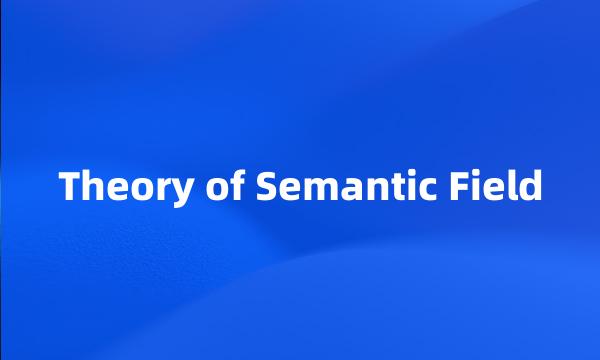Theory of Semantic Field
- 网络语义场理论
 Theory of Semantic Field
Theory of Semantic Field-
The Theory of Semantic Field and Its Application to English Vocabulary Teaching
语义场理论在英语词汇教学中的运用探究
-
Here the fuzzy words can be identified through the analysis with the theory of semantic field .
这里的模糊词语可以通过语义场理论的分析进行检测。
-
In part 2 , the paper uses the theory of semantic field to analyze the lexical system on Chinese dress .
第二部分运用语义场理论分析先秦汉语服饰词汇系统;
-
This paper , beginning with the theory of semantic field , classifies the verbs into several groups .
本文首先从语义场理论着手,对情感性使役动词进行归类。
-
The theory of semantic field has already obtained plenteous result on the studies of modern Chinese vocabulary . However , studies of ancient Chinese vocabulary still require further efforts .
语义场理论在现代汉语词汇研究上已经取得了丰硕的成果,然而,运用语义场理论研究古汉语词汇依然有待进一步深入。
-
Previous researches laid stresses on the differences among lexical semantic relations , and ignored its basic patterns , which has limited the development of the theory of semantic field .
以往的研究强调词汇语义关系的差异,而忽视词汇语义关系基本模式的研究,这限制了语义场理论的发展。
-
According to the theory of semantic field , vocabulary is an integrated system interrelated in sense and can be divided into semantically related sets or fields . Words in each semantic field define one another .
而跟据语义场理论,在一个完整的系统里,词语在含义上相互联系,并能够被分为不同的语义场,语义场中的一个词语意义发生改变就会引起整个语义场的变化。
-
The second chapter is to explore the vocabulary selection from the theory of cognitive and semantic field .
第二章笔者主要从认知理论和语义场理论探讨七篇课文选编问题。
